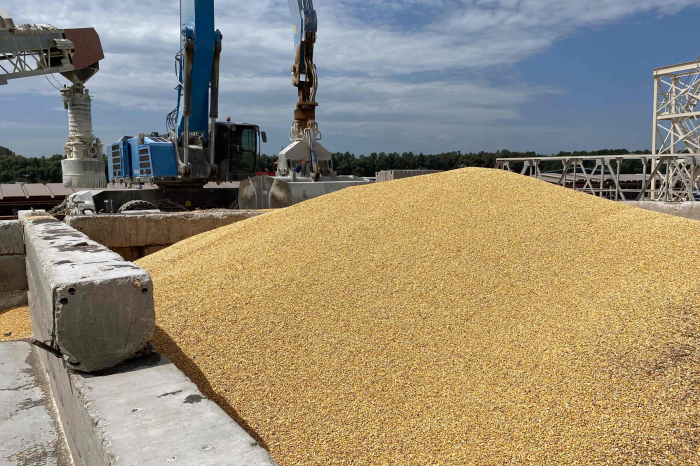At Ukraine's request, NATO Secretary General Jens Stoltenberg is convening a meeting of the new NATO-Ukraine Council on Wednesday.
The aim is to "consult on the latest developments and to discuss the transport of Ukrainian grain through the Black Sea," said NATO spokesperson Oana Lungescu. The meeting is to be held at the ambassadorial level, she said.
Shortly before the announcement, Stoltenberg had spoken on the phone with Ukrainian President Volodymyr Zelenskyy about Russia's withdrawal from the Black Sea grain deal, which had allowed Ukraine to sell some 33 million tons of grain and food abroad since last summer despite the ongoing conflict.
"We strongly condemn Moscow's attempt to weaponize food," Stoltenberg tweeted after the call.
"Allies stand with Ukraine for as long as it takes; and following NATO Summit, Ukraine is closer to NATO than ever before," he added, referring to the NATO summit held in Lithuania earlier in July.
At the NATO meeting, the 31 members of the defense alliance decided to intensify cooperation with Ukraine further. They established the NATO-Ukraine Council, a joint consultative forum to promote the discussion of security issues with Kyiv.
Zelenskyy said he and Stoltenberg had discussed the implementation of agreements reached during the summit and further steps to integrate Ukraine into the Western defense alliance.
"We also identified, with Mr. Stoltenberg, the priority and future steps necessary for unblocking and sustainable operation of the Black Sea grain corridor," Zelenskyy tweeted.
Russia halted the grain deal earlier this week because, according to Moscow, its demands for facilitating agricultural exports had not been met.
Not only did Russia reinstate its naval blockade of Ukrainian ports, but it has been bombarding the city of Odessa, one of the ports through which Kyiv shipped grain under the deal, and other Ukrainian regions for days. It has also threatened to attack any ship in the Black Sea region.
Russia has said it wants the West to remove sanctions, specifically a ban on its banks using the international payments method SWIFT, before it would extend the agreement.
The European Union, which supports the Ukrainian grain export deal, has said Russian grain and fertilizer are exempt from the sanctions and many banks are still connected to SWIFT.
The U.N. condemned Russia for not extending the agreement, saying it would result in more deaths from starvation for people in the poorest regions already suffering severely.
For many of the 362 million people in 69 countries who rely on food aid, the Kremlin's decision not to extend the deal is "not a matter of sadness or disappointment. It's a matter of threat to their future and the future of their children and their families," U.N. Emergency Relief Coordinator Martin Griffiths told the U.N. Security Council in New York on Friday.
"They're not sad; they're angry. They're worried, they're concerned. Some will go hungry; some will starve. Many may die as a result of these decisions," he said.
China's deputy permanent representative to the United Nations, Geng Shuang, called for an early resumption of grain and fertilizer exports from Russia and Ukraine at the U.N. Security Council.
During a U.N. Security Council meeting on Friday, China's Deputy Permanent Representative to the U.N., Geng Shuang, underlined the importance of the Black Sea grain deal for global food security, according to Chinese state broadcaster CGTN.
China hopes the parties concerned work together with the relevant U.N. agencies and resume the export of grain and fertilizer from Russia and Ukraine at an early date, he added.
Earlier, President Recep Tayyip Erdoğan also urged his Russian counterpart Vladimir Putin to restore the deal initially brokered by the U.N. and Türkiye, and also called on Western countries to consider Russia's demands.
The accord was signed in Istanbul in July last year by Russia, Ukraine, Türkiye and the U.N., creating a safe corridor through the Black Sea for exports from three Ukrainian ports halted since the war began in February 2022.
It helped rein in spiraling prices and ease a global food crisis by restoring the flow of wheat, sunflower oil, fertilizer and other products from Ukraine, one of the largest grain exporters in the world.
Moscow this week refused to extend the agreement beyond July 17, saying parts related to its demands have "not been implemented so far," referring to the removal of obstacles to its own fertilizer exports, including the inclusion of the state-owned Russian Agricultural Bank in the SWIFT international payment system.
More about:
















































